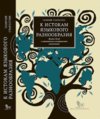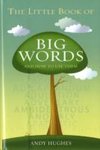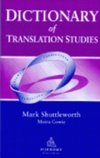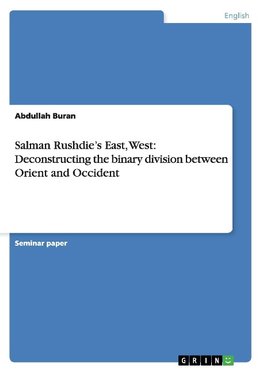
-
 Anglický jazyk
Anglický jazyk
Salman Rushdie's East, West: Deconstructing the binary division between Orient and Occident
Autor: Abdullah Buran
Seminar paper from the year 2009 in the subject English Language and Literature Studies - Literature, grade: 1,3, University of Wuppertal, language: English, abstract: 1. Introduction
While reading the title of Rushdie's short story cycle East, West...
Viac o knihe
Na objednávku
16.65 €
bežná cena: 18.50 €
O knihe
Seminar paper from the year 2009 in the subject English Language and Literature Studies - Literature, grade: 1,3, University of Wuppertal, language: English, abstract: 1. Introduction
While reading the title of Rushdie's short story cycle East, West a very important question arises in the reader's mind: does Rushdie use the comma in between the title to show the binary division of the Orient and Occident or does he want to make a bridge between East and West (Homeless Is Where the Art Is 162)?
However, after in depth research on this book, it becomes clear that Rushdie goes even further than this bridging device. He not only tries to connect or mediate both the East and West, but as a traveller and migrant himself, he pokes fun at the traditional notions of Orient and Occident, employing a vast range of styles, genres, structures and techniques, finally deconstructing the binary division between East and West.
In doing so, he subverts the reader's traditional assumptions about the Orient and Occident and clarifies that, in today's reality; the East and West cannot be described in such a simplistic way anymore.
In Imaginary Homelands, Rushdie writes that "literature is, of all the arts, the one best suited to challenging absolutes of all kinds" (Beck: 356) this is precisely what happens in his short story cycle East, West. Nothing is "sacred" any longer, hence most of the stories in East, West can be regarded as examinations to provoke and deconstruct the inviolable of Eastern and Western culture (Beck 360).
To summarise, Rushdie mocks absolutist concepts of the oriental and occidental systems. By criticizing and deconstructing traditional notions he points out that, within the global village, the East and West are closely interrelated and cannot be regarded as opposites. Rushdie goes far beyond the familiar row about the binary division of the Orient and Occident.
Although the short stories in East, West on the one hand embrace this deconstructive design and on the other depict the abundance and manifoldness of human existence in the Orient and Occident, they do not provide easy interpretations.
This term paper attempts to determine the way Rushdie criticizes and deconstructs the traditional concepts and prejudices regarding the Orient and Occident and the way in which he disassembles these false images. The thesis that Rushdie deconstructs the binary division between the East and the West and displays the world as an intricate, interrelated system will be the main focus of this paper.
Two stories from the East part of his short story cycle East, West; Good Advice Is Rarer than Rubies, The Prophet's Hair one...
- Vydavateľstvo: GRIN Verlag
- Rok vydania: 2009
- Formát: Paperback
- Rozmer: 210 x 148 mm
- Jazyk: Anglický jazyk
- ISBN: 9783640480616
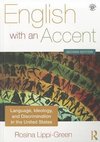


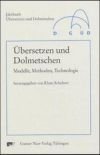
 Nemecký jazyk
Nemecký jazyk 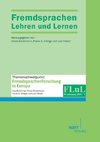
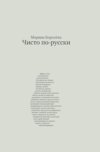
 Ruský jazyk
Ruský jazyk 

